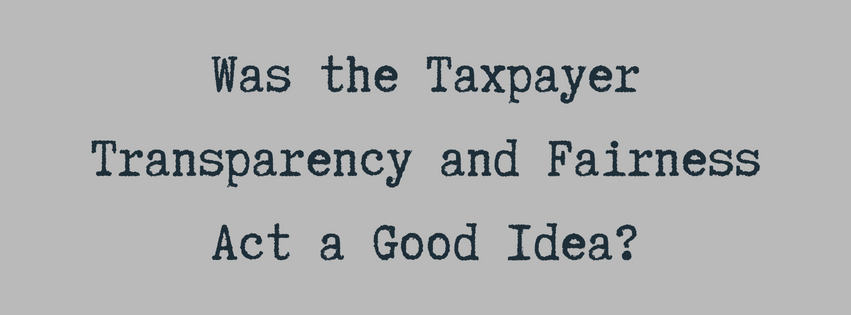When Governor Jerry Brown signed the Taxpayer Transparency and Fairness Act into California state law on June 27th, 2017, the effective gutting of the Board of Equalization (BOE) into two separate tax agencies – the Office of Tax Appeals (OTA) and the California Department of Tax and Fee Administration (CDTFA) – garnered some mixed and apprehensive feelings from lawmakers and taxpayers alike.
Today, this decision still leaves many wondering: was the Taxpayer Transparency and Fairness Act a good idea?
What Is Different?
Traditionally run by four elected officials, California’s BOE used to decide everything from standard tax appeal cases, to the administration of taxes statewide. And though sometimes a bit more of a sinecure, at least the officials elected often ruled more in favor of the taxpayer as a natural recourse towards reelection and securing a higher office.
Today, it is the CDTFA handling sales, use, excise, and business tax administration, as well the assessment of state fees and business tax appeals, while the OTA oversees sales, use, and income tax disputes.
Meanwhile, the BOE’s power has been minimized to merely managing public utility property taxes, adjusting local property tax assessments, reviewing insurance company taxes, and administrating the tax rates on alcohol and gas.
Why the Change?
It’s no secret that the public has been calling for changes within the BOE for a while now due to reoccurring scandals from misspending to nepotism, however, many now worry that the state Legislature’s decision to practically abolish the board – versus implementing a few audits and key policy changes – might have been potentially harmful overkill.
The real reason for the change, however, lies in the simple fact that it’s the Legislature’s job to ensure that the state’s spending matches the amount of tax money coming in. So, if the vote-driven officials of the BOE are making lenient tax cuts to benefit the taxpayer more than the system, it makes sense that the state would seek a more structured administration.
How Will the Taxpayer Be Affected?
Perhaps the biggest concern for taxpayers lies within the loss of impartiality. With tax appeals now judged by a bureaucratic system that obviously benefits from a ruling in the state’s favor, many small businesses and low-income taxpayers who cannot afford a good lawyer, or even a lawyer at all, could face unfairness in the courtroom.
Another problem lies in the large backlog of cases still waiting on a ruling, as officials now have up to 100 days to come to a decision, versus the potential same-day verdict the BOE used to achieve – fees and penalties adding up all the while.
And as for the “transparency” the act boasts of? Whereas the BOE used to archive and televise its hearings for public review and later use in court, today the CDTFA and OTA only release hearing transcripts.
All in all, whether or not the Taxpayer Transparency and Fairness Act was a good idea, still remains to be seen. But so far? Many are skeptical that it will ever live up to its name.
